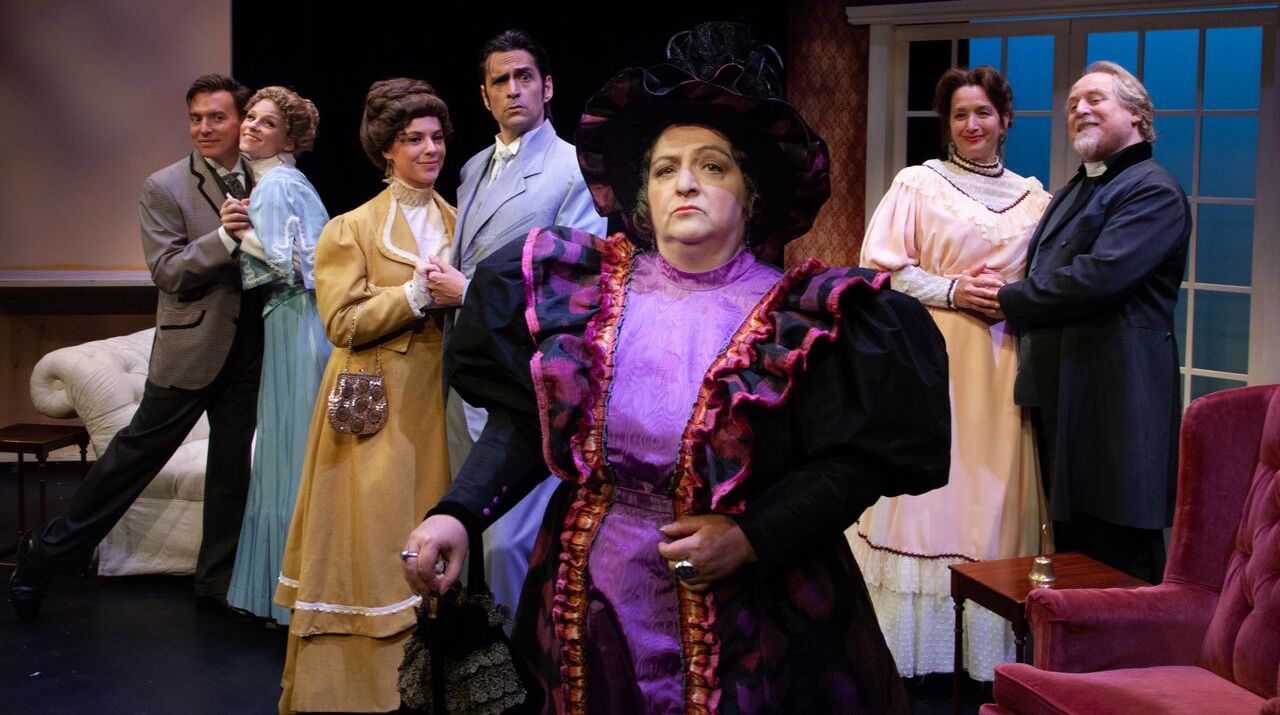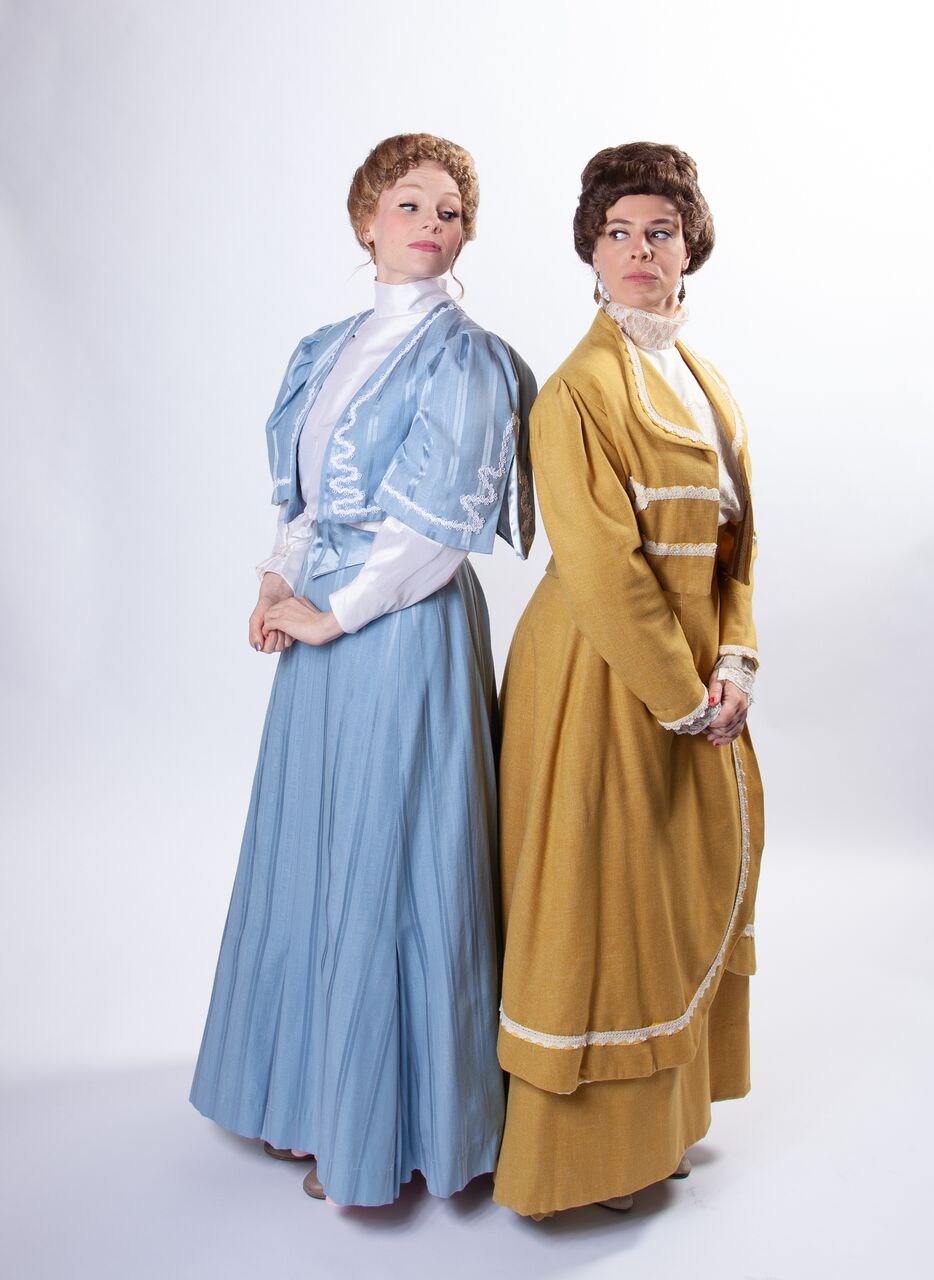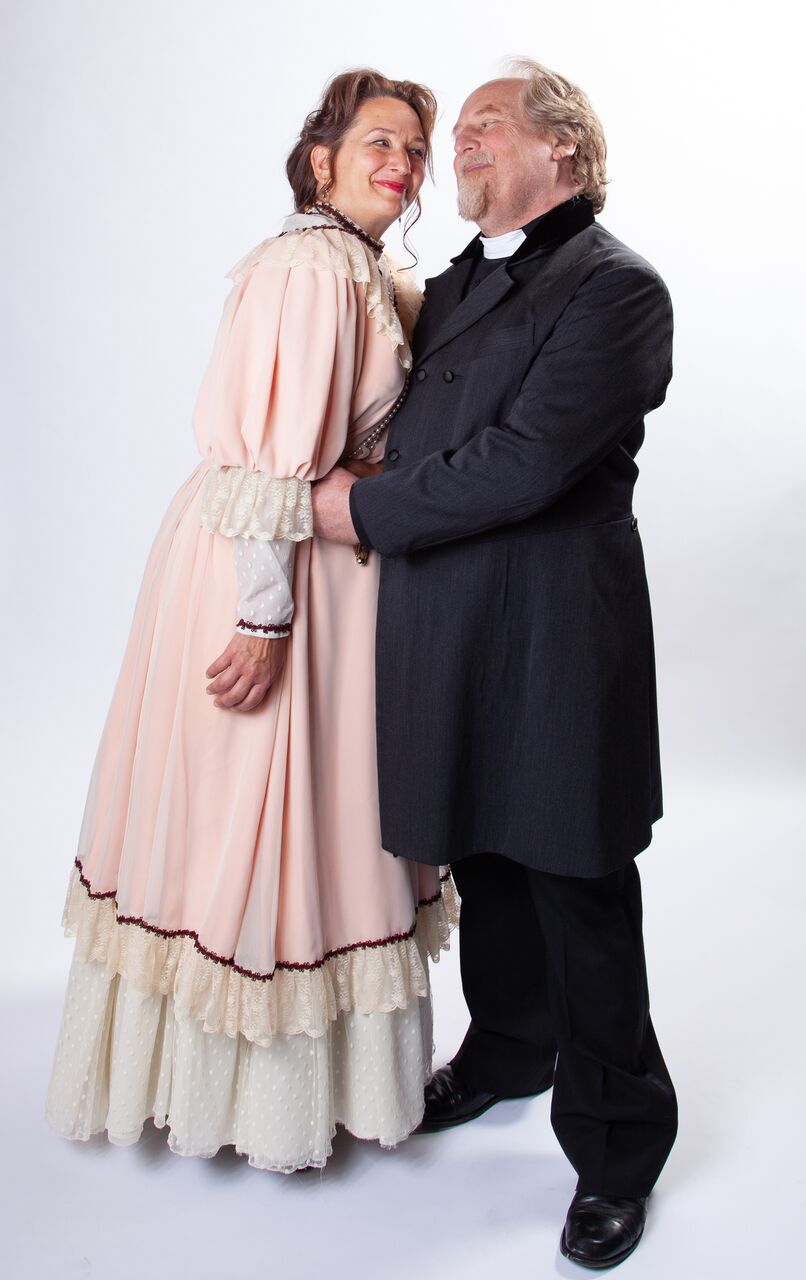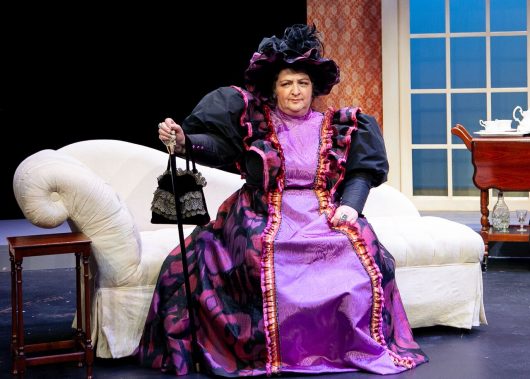THEATRE REVIEW: Oscar gone Wilde
Posted on July 13, 2018 By Colin MacLean entertainment, Entertainment, Front Slider, Theatre
 Since its premiere in 1895, Oscar Wilde’s The Importance of Being Earnest has become one of the most successful and oft-produced comedies in the world. Theatre fans may find themselves mouthing the famous epigrams, aphorisms, gags, quips, bon-mots, etc. etc. with the performers on stage. That familiarity can be kind of fun as an audience participation trick, but all too often leads to the actors emphasizing the comic bits as if underlined by a neon felt pen. When that happens, Wilde’s delightful characters and comments can be lost in misplaced efforts at artificial emphasis.
Since its premiere in 1895, Oscar Wilde’s The Importance of Being Earnest has become one of the most successful and oft-produced comedies in the world. Theatre fans may find themselves mouthing the famous epigrams, aphorisms, gags, quips, bon-mots, etc. etc. with the performers on stage. That familiarity can be kind of fun as an audience participation trick, but all too often leads to the actors emphasizing the comic bits as if underlined by a neon felt pen. When that happens, Wilde’s delightful characters and comments can be lost in misplaced efforts at artificial emphasis.
 That is definitely not the case with the latest production on stage at the Varscona Theatre until July 28.
That is definitely not the case with the latest production on stage at the Varscona Theatre until July 28.
These summer nights, two mighty comic forces come together: Oscar Wilde, the wilful bad boy of late Victorian theatre; and Stewart Lemoine, with his sprightly Teatro la Quindicina theatre company. Teatro is known for its articulate and whimsical productions of the Lemoine oeuvre, but you don’t have to look very hard to find similar comic sensibilities in two playwrights separated by an ocean and a Century. Both are able to make us laugh continuously at exuberantly comic situations and characters. Both also have demonstrated an ability to build on a subtext of sharply observed societal norms, a running commentary on their respective times, and life’s absurdities.
In short, it’s a marriage made in comic heaven.
Director Jeff Haslam has opted for a light approach that pays respectful and not slavish tribute to the original’s wit and charm while providing a few comic touches of his own – proving that Wilde’s masterpiece may be well-worn, but not worn out.
 Just a mention of the cast will have Teatro regulars salivating. The multi-talented Mark Meer, who has made a career of being a Peter Sellers all rolled into one, is a proper Jack Worthing, a young-man-about town who is rapidly trying to distance himself from his tenuous beginnings. No scion of a wealthy family he. As a baby he was found in a handbag in a cloakroom of Victoria Train Station. His partner Algernon Moncrieff is played by Ron Pederson, a long-time Teatro regular and superb comic actor. Algy is a classic scalawag who delights in upsetting his more sedate friend’s schemes. These two waste no time getting down to it in the famous banter where they dine out on a comic comparison of bread-and-butter vs. cucumber sandwiches. How British! How delightful!
Just a mention of the cast will have Teatro regulars salivating. The multi-talented Mark Meer, who has made a career of being a Peter Sellers all rolled into one, is a proper Jack Worthing, a young-man-about town who is rapidly trying to distance himself from his tenuous beginnings. No scion of a wealthy family he. As a baby he was found in a handbag in a cloakroom of Victoria Train Station. His partner Algernon Moncrieff is played by Ron Pederson, a long-time Teatro regular and superb comic actor. Algy is a classic scalawag who delights in upsetting his more sedate friend’s schemes. These two waste no time getting down to it in the famous banter where they dine out on a comic comparison of bread-and-butter vs. cucumber sandwiches. How British! How delightful!
The two are well matched by their female counterpoints, Gwendolen Fairfax (Louise Lambert) and Cecily Cardew (Shannon Blanchet). Skittish and often bemused, both women are the main objects of the men’s affection. During Acts I and II, the two may be deceived and incensed by the well-meaning but generally clueless male characters. However, by Act III, all is easily forgiven. The two couples are hopelessly in love, at least by Victorian standards. Cecily is described as “a sweet simple, innocent girl.” Gwendolen, meanwhile, is “a brilliant, clever, thoroughly experienced lady.”
 Wilde didn’t give all the good lines to the men. Gwendolen observes, “I never travel without my diary. One should always have something sensational to read in the train.” Her and Cecily have a lovely charged scene where they swear to be best friends, then switch to being mortal enemies, and then instantly back to eternal friendship again – all in the space of few minutes.
Wilde didn’t give all the good lines to the men. Gwendolen observes, “I never travel without my diary. One should always have something sensational to read in the train.” Her and Cecily have a lovely charged scene where they swear to be best friends, then switch to being mortal enemies, and then instantly back to eternal friendship again – all in the space of few minutes.
There is a sub plot of a late-years romance between the governess, Miss Prism (Cathy Derkach), and the vicar, Canon Chasuble (Julien Arnold). At first it seems it’s just Wilde poking some good-natured fun at fuddy-duddy Brit oldsters, but the entire climax is dependent on the revelations of one of the elderly dears. Derkach and Arnold have been part of the Edmonton theatre scene for a long time and they relish the opportunity to thickly slice up the old “bubble and squeak.”
And here is one of the most recognizable of British stereotypes – the haughty Lady Bracknell played as a kind of elegantly-frocked Margaret Thatcher by Leona Brausen – in the role she was born to play. Lady Bracknell is a Gorgon, an imperious arbiter of all things. Her screech when she summons Gwendolen to join her would ruffle the feathers of the pigeons in the bell tower of the local kirk. When she first sees Cecily, she regards her as she might a passing tram car – only to become much more interested as she realizes that Cecily is a wealthy heiress.
 No one in the play is quite whom they seem to be – which is so much part of the fun.
No one in the play is quite whom they seem to be – which is so much part of the fun.
The colourful and fully time-appropriate costumes by Robert Shannon are a valuable asset to both time period and character.
Haslam, a sympathetic director, delivers a smooth pudding of a production, full of playful British digs at identity, and the game of how important one’s birth and lineage are to happiness, behind a facade of a hypocritical society. The cumulative effect of this fine company’s abilities keeps this finely-tuned vintage Rolls Royce clipping along, transmuting an old-fashioned Victorian comedy of manners into a fresh, contemporary evening of fun.
Photos by Mat Busby











